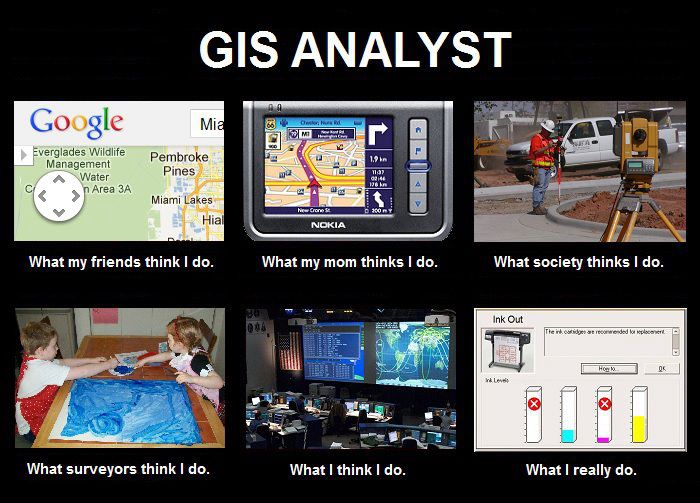Whenever I do a presentation about anything related to GIS, I consider the level of knowledge of GIS of the audience. The worst times are definitely when I need to explain GIS to a group that has almost no knowledge about it. I said virtually, because by know everyone has interacted with some type of electronic map in one way or another (elephant in the room is Google Maps), so I usually start from there and explain everything that is necessary to create Google Maps. I have found that works quite well.
I know there are several formal definitions of GIS.
The questions are:
- Which formal definition of GIS do you use?
- How do you explain it to somebody that doesnt know much about the field in elevator pitch style? (30 seconds)
- How do you explain it when you do have more time? (10 min)

